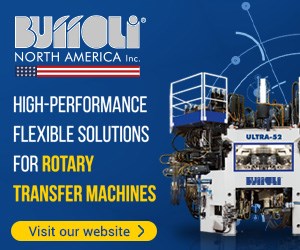Forget About Parts--We Are Really In The Satisfaction Business
Several times this year, I have presented a "Cost of Quality" talk to local meetings of PMPA districts or chapters around the country. This program makes the case for why we have to adopt Lean Manufacturing techniques in our shops.
Several times this year, I have presented a “Cost of Quality” talk to local meetings of PMPA districts or chapters around the country. This program makes the case for why we have to adopt Lean Manufacturing techniques in our shops.
One of the program’s slides is a photograph of a judge with a gavel. The point is that when people don’t get what they expect, when they incur additional costs to use your product, they go to the courts to recover those unexpected costs.
Failure to adequately control your process allows the costs of nonconformance to squeeze out to your customer, as if you were squeezing one end of a balloon, forcing the air (costs) into the other end. Of course, your customer doesn’t want those costs, so “order in the court” becomes the phrase of the day.
Further thought on this has convinced me that, while the focus on cost of quality—along with the cascading costs of internal and external nonconformance—is legitimate, it misses an important point. The point is that the real reason your customers gave you the purchase order was not to obtain parts, but to obtain satisfaction.
Customers want parts that fulfill their stated and unstated, documented and undocumented requirements. The focus on merely producing parts misses a considerable area of the deal between your company and your customers—their satisfaction throughout the entire transaction.
In the hit song, the Rolling Stones’ lead singer Mick Jagger couldn’t “get no” satisfaction, and he has turned that phrase into quite a career. However, it is highly unlikely that our shops will have as long and successful of a run as Mick has had if we fail to provide satisfaction in every area of our organization’s capability.
We make parts. But those parts are only the medium of exchange between the customer and us. We sell them parts and they give us a check. However, they can get parts from many others (in many other countries, too). What is it that makes receiving parts from our shops a unique and “satisfying” experience?
What we really sell is the time available on our machines. Although, other companies have similar machines, the time on our machines is available only from us. The same thing applies to the organizational and institutional knowledge of our companies and our employees. These are not available from other vendors. They are unique to us.
Similarly, our systems, procedures, knowledge of production methods, and knowledge of suppliers of materials, tools and other processes are unique to our organization. This knowledge becomes a compelling reason for buying parts from us. The fact is that while such knowledge is all-important, it misses an essential point: What does the customer really want and really need? What is it that will really satisfy the customer?
Knowing how to make parts—even good or excellent parts—isn’t sufficient to ensure customer satisfaction. What if the companies further up or down the supply chain (suppliers or processors) miss the point? What if the regulators or bureaucrats (RoHS, ELV and DFARS) throw you or your customer a curve with a new and unforeseen regulation?
That’s why competence at making a product isn’t good enough anymore. Mere competency in manufacturing is taken for granted. To earn customer satisfaction, our organizations have to become providers of concierge-quality service that anticipates the needs, facilitates the transaction and transition issues and results in a satisfied customer.
In the end, delivering satisfaction is as much about human-to-human, organization-to-organization care and communications as it is about making chips and achieving surface finishes. It’s about listening, speaking forthrightly (why say “yes” if you know you can’t), and treating customers not as we would like to be treated, but as they would like to be treated.
How would you like to be treated? That’s for you to help your suppliers understand. Satisfaction—that’s the business we’re really in. Keep singing, Mick. We’re right here with you.
Read Next
Do You Have Single Points of Failure?
Plans need to be in place before a catastrophic event occurs.
Read More5 Aspects of PMTS I Appreciate
The three-day edition of the 2025 Precision Machining Technology Show kicks off at the start of April. I’ll be there, and here are some reasons why.
Read MoreA Tooling Workshop Worth a Visit
Marubeni Citizen-Cincom’s tooling and accessory workshop offers a chance to learn more about ancillary devices that can boost machining efficiency and capability.
Read More










.jpg;maxWidth=300;quality=90)






